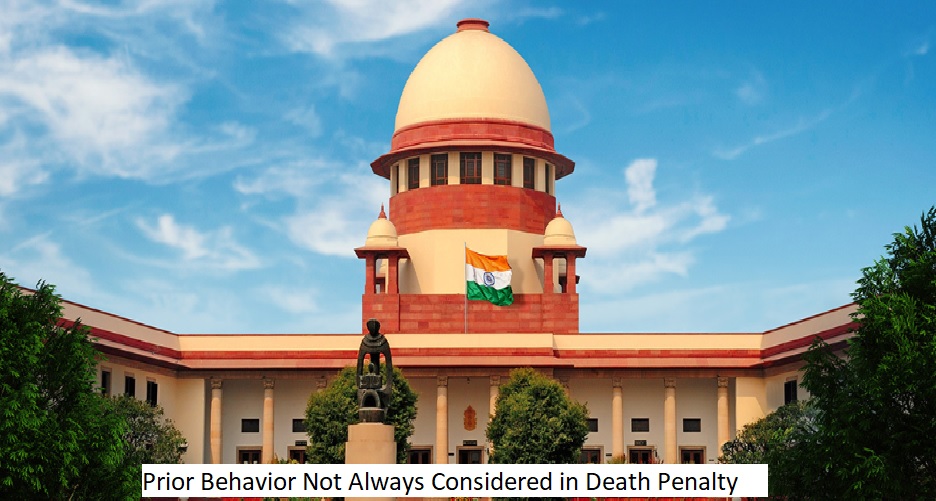


Last week, a significant legal development unfolded as the Supreme Court took a decisive step in the case of a man accused, along with others, of engaging in a brutal act of violence that resulted in the death of multiple individuals. The incident, marked by a firing on and killing of people over suspected political enmity in Muzaffarnagar, Uttar Pradesh, had led to the imposition of the death sentence. However, the Supreme Court, in a thought-provoking decision, set aside this sentence, introducing a nuanced perspective on the consideration of past conduct in cases that fall within the category of the 'rarest of rare.'
The heinous nature of the crime was not overlooked by the Supreme Court, as it acknowledged that the incident undeniably fell within the 'rarest of rare' category—a classification typically associated with the most severe and reprehensible criminal acts. The accused, along with his accomplices, had committed a grave offense by firing on and killing multiple people, with the alleged motivation being rooted in political animosity. Such acts of violence, particularly those driven by political motives, often elicit strong responses from the legal system due to their potential to undermine the fabric of civil society.
Despite the gravity of the crime, the Supreme Court introduced a novel dimension to its decision-making process by emphasizing the potential for reformation in the individual sentenced to death. The court's observation that the death row convict was not beyond reformation indicates a departure from a purely punitive approach, opening a discourse on the possibility of rehabilitation and transformation even in cases of extreme criminality. This nuanced perspective challenges the conventional narrative surrounding death penalty cases, where the focus tends to be primarily on the severity of the crime.
One of the key factors that influenced the Supreme Court's decision was the consideration of the individual's potential for recidivism. While the crime itself had been categorized as 'rarest of rare,' the court took into account the possibility that the convicted individual could reform and reintegrate into society. This acknowledgment of the capacity for change reflects a growing awareness within the legal system that a person's past conduct, no matter how egregious, should not always be the sole determinant in sentencing.
The decision to commute the death sentence in this case prompts a critical examination of the role of rehabilitation in the criminal justice system. By recognizing the potential for reform, the Supreme Court not only demonstrated a commitment to a more nuanced and individualized approach to justice but also highlighted the importance of assessing each case on its merits. This approach challenges the often rigid and categorical nature of capital punishment, encouraging a more discerning evaluation of the circumstances surrounding each crime and the possibilities for rehabilitation.
The legal discourse surrounding death penalty cases has been a subject of ongoing debate globally, with proponents and opponents presenting arguments rooted in ethics, human rights, and the efficacy of such punitive measures. The Supreme Court's decision in this case contributes to this broader conversation by injecting a nuanced perspective that takes into account the potential for redemption and reformation, even in the face of the most severe crimes.
In conclusion, the Supreme Court's decision to set aside the death sentence in the Muzaffarnagar case signifies a notable shift in the approach to capital punishment. By recognizing the potential for reformation and considering the individual's capacity for change, the court introduces a more nuanced and humane dimension to the discussion surrounding the 'rarest of rare' category. This decision prompts a reevaluation of the role of rehabilitation in the criminal justice system and underscores the importance of a case-by-case analysis in determining appropriate sentencing measures.
TAGS: Supreme Court Death Sentence Muzaffarnagar Rarest of Rare Political Enmity Reformation Recidivism